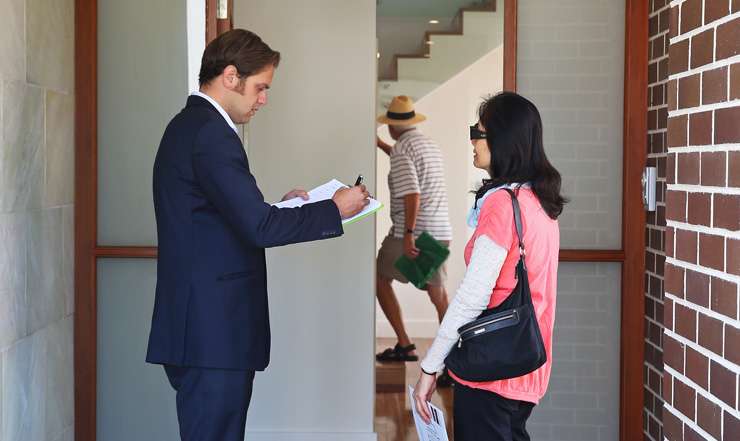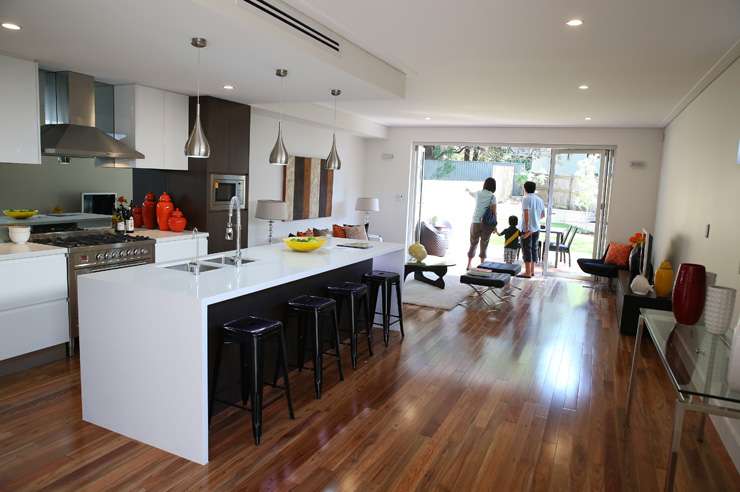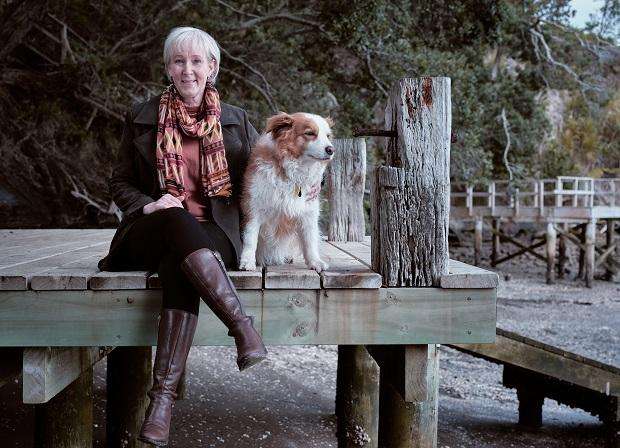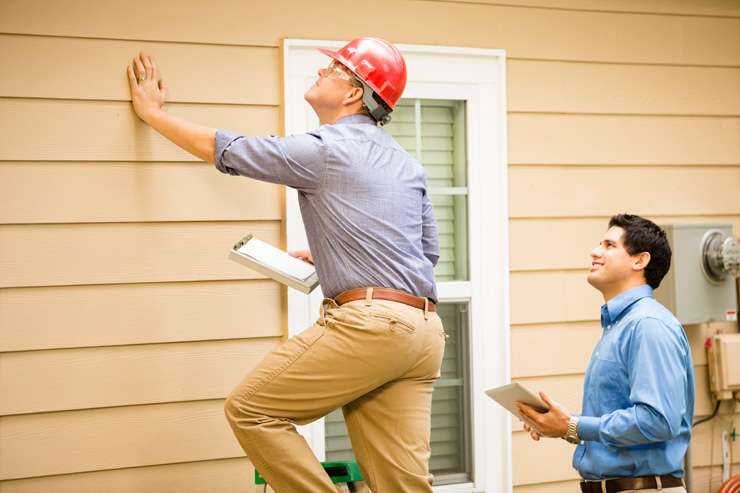Buying property usually means traipsing around endless open homes to find the perfect one.
Serious buyers need to do more than smell the roses, bread or coffee and admire the existing owner’s decor, which is what many do. Instead, they plan, carry checklists, take notes, and ask lots of questions.
The serious stuff starts even before stepping through the gate at an open home. Look at what the parking is like. Consider how safe the roads are, especially if children will live there. Look at the neighbouring properties. Are there businesses, schools or other sources of noise or smells nearby? What is the street appeal like? If it’s good, the home will be easier to sell next time around.
Serial investor Mark Trafford looks straight past the staging when he attends an open home.
Start your property search
“Try and look past the staging. I was in a very nice house [the day before the interview],” says Trafford, who owns Maintain to Profit Renovations. “The staging was superb. But if you took the staging out of the house, it would have been pretty average.”
When he is at an open home, the number one defect Trafford looks for is water damage on walls or carpets.
“[Water damage] can indicate there might be something wrong underneath the carpet or there might be significant leaks in the bathroom. Look for mould around the skirting boards and if the paint is a little bit flaky, that tells you there’s a problem.
“I also look for the soil piled up against the brickwork. In 1970s and 1980s houses they just cut a hole in the ground and put the brickwork up. It leaks through.
“These are things that Joe Bloggs can see. Get a building inspection if you want to know more,” Trafford says.

Ask the real estate agent questions - lots of them. Photo / Getty Images
Buyers who want to overcome the staging effect of open homes, should download the printable checklist at settled.govt.nz to carry with them at an open home to ensure they keep their mind on the job.
The checklist covers the outside as well as the inside of the building. Outside it reminds buyers to check guttering and spouting for obvious damage. Look under the house at the piles, check retaining walls, and consider access, paths, parking, light, trees. Inspect the shared spaces for apartments, flats, or townhouses.
Inside, don’t just get wooed by the kitchen and bathroom. Check the insulation, ventilation and heating. Look at the condition of the floor coverings. Open and close all windows and doors and make sure all the power points, lighting and cooking facilities work. Figure out what the shower pressure is like. Then look at the layout and imagine living there. Is there sufficient storage?
Make sure to consider smells. Does the home smell of mould, cigarette smoke or pet urine? Beware if there are strong plug-in room fragrances or other smells such as baking bread. They may be hiding something.
If Bayleys Devonport agent Linda Simmons was taking her adult children to open homes as buyers, she says the very first recommendation would be to ask lots of questions.
“Don’t see the agent as the enemy,” says Simmons. “Ask why people are selling. Have they bought? If a seller is motivated to sell, they’re going to be open to people who are motivated to buy.”

Checking out a property at different times of the day can give you a feel for what it would be like to live there. Photo / Getty Images
If the vendor is not motivated to sell, paying for a building report prior to an auction could be expensive. On that subject, ask the agents if a LIM and building or other reports on the property are available to be viewed.
Licensed real estate agents are required by law to inform buyers about issues with the home they’re aware of. That could be anything such as flooding, contamination, and a range of issues.
Reports supplied by the agent might help rule out unsuitable properties. However, serious buyers need to get their own reports prepared just to be safe.
Another question to ask, says Simmons, is when settlement is and if the date is flexible.
Taking the time to explain needs to an agent could pay off, says Simmons. The agent may know of suitable properties about to come on the market or being sold off market. “The agent might connect the dots and say: ‘look, I have this home coming up. It’s off the market, but would be really good for you’,” says Simmons.

Bayleys real estate agent Linda Simmons: "Open all the doors and try the kitchen cupboards.” Photo / Ted Baghurst
Next look at the flow of the property, says Simmons. Does it work? If it works well, the home will be good to live in. “The flow will determine how easy that house will be to sell next time around.”
Look at the practicalities of what is needed to live in the house. Are there wardrobes or room to add them? Which child will get which room? Is the laundry easily accessible or tucked away down a narrow flight of stairs? “Imagine yourselves in the home, rather than be wooed by the pretty bed linen,” she says.
It’s important to consider the sun, says Simmons. “Especially in New Zealand where we have hardly any good heating. Do you want sun in the afternoon? Or sun in the morning?”
Simmons recommends the Sunseeker app, which can identify the angle the sun will be in that property at different times of day and seasons.
“Then look at maintenance,” she says. “Is it looking really good? Or there’s lots of shabby stuff around?”
Don’t be afraid to ask for a private viewing, especially if the open home was very busy, says Simmons. “I hear of so many people who move into a home and didn’t realise (for example) the kitchen was (not practical).”
Simmons saw one buyer completely replace a new kitchen because it wasn’t perfect. “That’s where a private viewing comes in,” she says. “Open all the doors and try the kitchen cupboards.”
Always get a building report done by a registered, insured expert, says Reveal Building Consultants director Nick Gaites, a registered building surveyor. That doesn’t necessarily mean using a building surveyor. If it’s a fairly standard property with no obvious issues then a standard pre-purchase inspection is probably sufficient.

Getting a builder to examine the structure and difficult to reach areas can save you from buying a dud. Photo / Getty Images
“You can go to one of the lower cost inspection companies if they have qualified and insured members undertaking the work. It’s a relatively low cost, especially compared to the amount of investment you’re going to make.”
Gaites prefers personally to build homes instead of buying them. But as a professional if he was taking friends or family to an open home he would first warn them off any plaster clad home, even if it had a cavity.
Once they arrived at the property, Gaites would recommend spending time outside: “When you go to the property look around the outside. Look for things like the ground level. Is there a sufficient separation between the internal floor level and the outside ground level? Is there soil built up against the walls? Or are there lots of plants against the house that have grown up inside?
“Does the roof have an overhang on the eaves around the property? And does it generally look like it’s been well maintained?”
Inside, Gaites would inspect any newly replaced carpet or painted walls.
“It’s perfectly reasonable for someone to paint, or replace a carpet when they sell. If it’s just one room, they could be hiding water damage from a window or ceiling. Look to see if the ceilings are flat and level. Are there any bubbles or undulations in the ceilings or walls, or any cracks in the windows?
“Bathrooms in particular are an area to pay close attention to. Are there any signs of any mould growth? Are there cracks in any of the walls? Does it have a tiled shower? Tiled showers are very, very popular, but really difficult to get right. And we have [seen] a lot of issues with leaking tile showers.”













































































